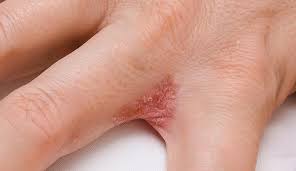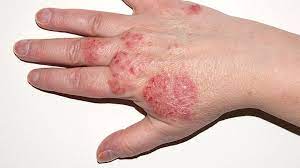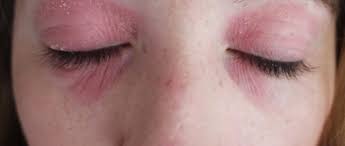Introduction
Eczema, a common skin condition, can be particularly challenging when it affects sensitive areas like the eyes. Eczema around the eyes can cause discomfort, redness, and itching, making it essential to understand the condition and how to manage it effectively. In this article, we will explore the causes, symptoms, and treatment options for eczema around the eyes.
Understanding Eczema Around Eyes
Eczema, also known as atopic dermatitis, is a chronic skin condition characterized by red, itchy, and inflamed skin. When it occurs around the eyes, it can be even more bothersome due to the delicate and thin skin in this area.
Common Causes:
- Genetics: Eczema often runs in families, indicating a genetic component.
- Allergens: Allergens such as pollen, dust mites, or pet dander can trigger eczema around the eyes.
- Irritants: Harsh skincare products, soaps, or makeup can exacerbate symptoms.
- Climate: Dry and cold weather can worsen eczema, as can excessive sweating in hot weather.
Symptoms of Eczema Around Eyes
Most common symptoms are itchy red patches and dry skin. Look out for the following signs:
- Redness: The skin around the eyes may become red and inflamed.
- Itching: Persistent itching can be a prominent symptom, leading to rubbing or scratching.
- Dryness: The skin may become excessively dry, leading to flakiness.
- Swelling: In severe cases, the eyes may appear puffy due to inflammation.
- Cracking: The skin may develop small cracks, which can be painful.

Managing Eczema Around Eyes
Managing eczema around the eyes requires a combination of preventive measures and treatments. Here are some effective strategies:
- Gentle Cleansing: Use a mild, fragrance-free cleanser to clean the affected area. Avoid rubbing or scrubbing, as it can worsen irritation.
- Moisturize: Apply a hypoallergenic moisturizer regularly to keep the skin hydrated and prevent dryness.
- Avoid Triggers: Identify and avoid allergens or irritants that worsen your symptoms. This may include changing your skincare products or adjusting your environment.
- Cold Compresses: Applying cold compresses can help soothe itching and reduce inflammation.
- Prescription Treatments: In severe cases, a dermatologist may prescribe topical corticosteroids or immunosuppressants for short-term use.
- Antihistamines: Over-the-counter antihistamines can help relieve itching and promote better sleep.
- Eye Protection: Wear sunglasses with UVA and UVB protection to shield your eyes from the sun and wind.
- Stress Management: Stress can exacerbate eczema symptoms, so practice stress-reduction techniques like meditation and deep breathing.

Best Eye Cream For Eczema On Eyelids
Mild topical steroids (0.5 – 1% hydrocortisone) are recommended for eyelid eczema.Topical calcineurin inhibitors (TCIs) – pimecrolimus (Elidel) and tacrolimus (Protopic) – are also prescribed for eyelid eczema.
Eczema flare-ups:
Conclusion
Eczema around the eyes can be uncomfortable and challenging, but with the right care and management, you can keep it under control. By following a gentle skincare routine, avoiding triggers, and seeking medical advice when needed, you can alleviate symptoms and enjoy healthier, happier skin. Remember that everyone’s eczema is unique, so consult a dermatologist for a personalized treatment plan tailored to your specific needs. Don’t let eczema around the eyes hinder your quality of life; take proactive steps to manage it effectively.
Incorporating these strategies into your daily routine can help you minimize the impact of eczema around the eyes and enjoy clearer, more comfortable skin. Remember, consistency is key in managing this condition, and with time and patience, you can achieve relief from eczema around the eyes.

